WIESBADEN, Germany - The camera flash catches the teens by surprise.
They stop, smile abruptly and begin again romping about the Wiesbaden Middle School gymnasium.
Another flash, another smile.
They laugh as they try on Soldier garb, an eight-pound helmet and flak jacket, and stand in front of a sign that reads "We also serve."
Another flash and one teen shies away from the camera retreating to the middle of a circle of friends.
In the last year, two studies have given snapshots of what military kids are experiencing as deployments continue in the global war on terror.
Two million U.S. military children have or have had a deployed parent.
One-third of those children are at "high risk" for psychosocial dysfunction.
Military children with deployed parents are also more likely than other American youth to have emotional and behavioral issues including anxiety and fighting.
"It's not (a question of) whether you'll have a difficulty or challenges during this deployment," Peter Witmer, school liaison officer for the U.S. Army Garrison Wiesbaden, told a group of Wiesbaden Middle School students, each of whom have a deployed parent.
"It's a matter of when ... and how you'll respond (to that difficulty)."
By Jan. 8, 862 Soldiers and civilians with 1st Armored Division in Wiesbaden were deployed to Iraq, Kuwait and Qatar.
The recent deployment significantly increased the number of students in the Wiesbaden garrison who will raise their hands when asked "Who has a parent deployed'"
"You're going to need some help and that's OK," said Lt. Col. Conrad Wiser, 1st Armored Division rear detachment commander, as he spoke at the Jan. 8 Wiesbaden Middle School assembly focused on the concept of "We also serve."
Witmer said the program, which busied children of deployed parents with an hour of fun activities, was intended to recognize that family members also serve and sacrifice to support deployments. Aukamm Elementary School held a similar event on Jan. 19.
"Today's families, especially children are under tremendous stress with the potential to damage their physical health as well as their psychological well-being," said Sue Gurley, Aukamm Elementary School principal. "We want to give back to our families some ideas and ways for them to cope."
A study published in the Journal of Developmental and Behavioral Pediatrics in August and a study released in early December 2009 by the RAND Corp. are some of the first research to look at the effects that the continued deployments are having on the youngest members of military families.
The findings have grabbed national headlines. But the studies' results are not new to military families.
"It takes a different breed of kid to be a military kid," said Lisa Wiser, who has moved 18 times in 17 years with her husband Lt. Col. Wiser and three children (two of whom still live at home).
Getting through deployments, Lisa had her children send their graded homework to their deployed father. In return, Lt. Col. Wiser would send videotaped sessions of himself reading books aloud to his children.
Through multiple deployments, the family coped. But, said Lisa, there were moments of anger.
"The children are angry because dad's not there and that anger gets turned to us (the parents who stay behind)," said Lisa.
According to the study published in August, military, family and community support help to mitigate family stress during periods of deployment.
At the "We also serve" assembly, Army Community Service officials and family readiness support assistants stood ready to talk about their programs - including those related to the Army Family Covenant - which range from family readiness groups to classes on being a new parent and financial management, all topics that touch on stress levels for spouses with deployed sponsors.
"It's probably the most important thing they should know," said Wiesbaden ACS director Jan Meert of the programs offered to family members of deployed Soldiers.
Also called a Muffins for Moms, Doughnuts for Dads deployment assembly, the We Also Serve program was intended "to let the kids and parents know that they are all part of a team," said Witmer.
The school unveiled its traveling mascot, Bob the Traveling Wildcat - a small stuffed animal that has since been decked out in miniature desert fatigues, a 1st AD patch and an official DoD identification card.
In a decade when parents deployed to combat zones can see and hear their children through the use of Skype and digital recordings, the traveling mascot is a throwback to the simpler pleasure of a still photograph.
Bob will travel between the middle school and deployed parents in Iraq. Each trip will come with a delivery of pictures showing Bob with deployed Soldiers and Bob with children of deployed Soldiers.
Witmer said he was amazed when a sixth-grade girl asked him "if Bob would be able to visit her dad in Qatar'"
"Of course," he said.
That's what Bob's for, giving deployed parents a snapshot of what their children are experiencing back home.
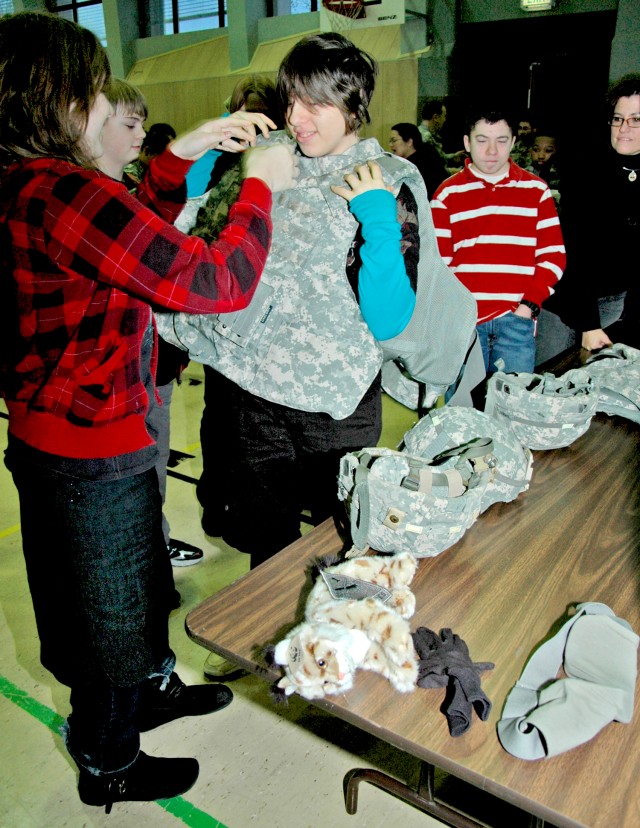
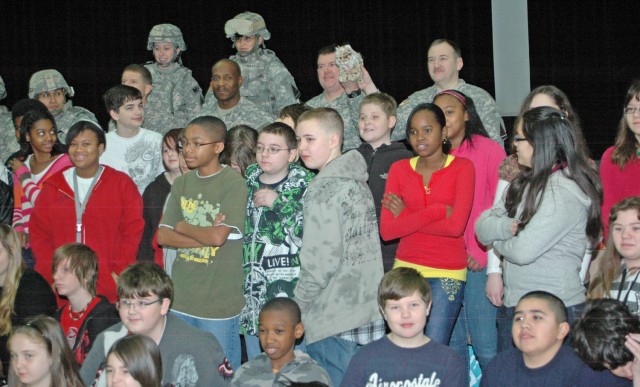
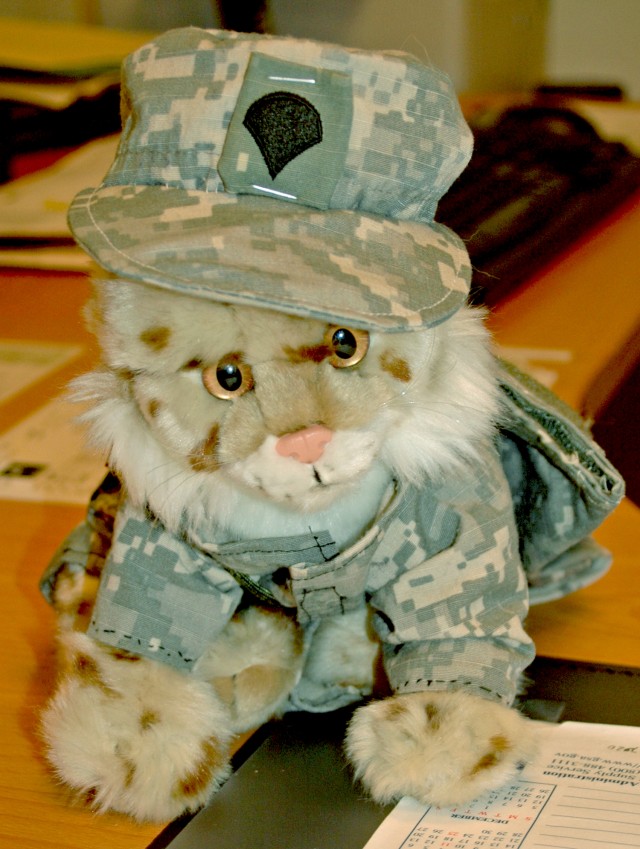
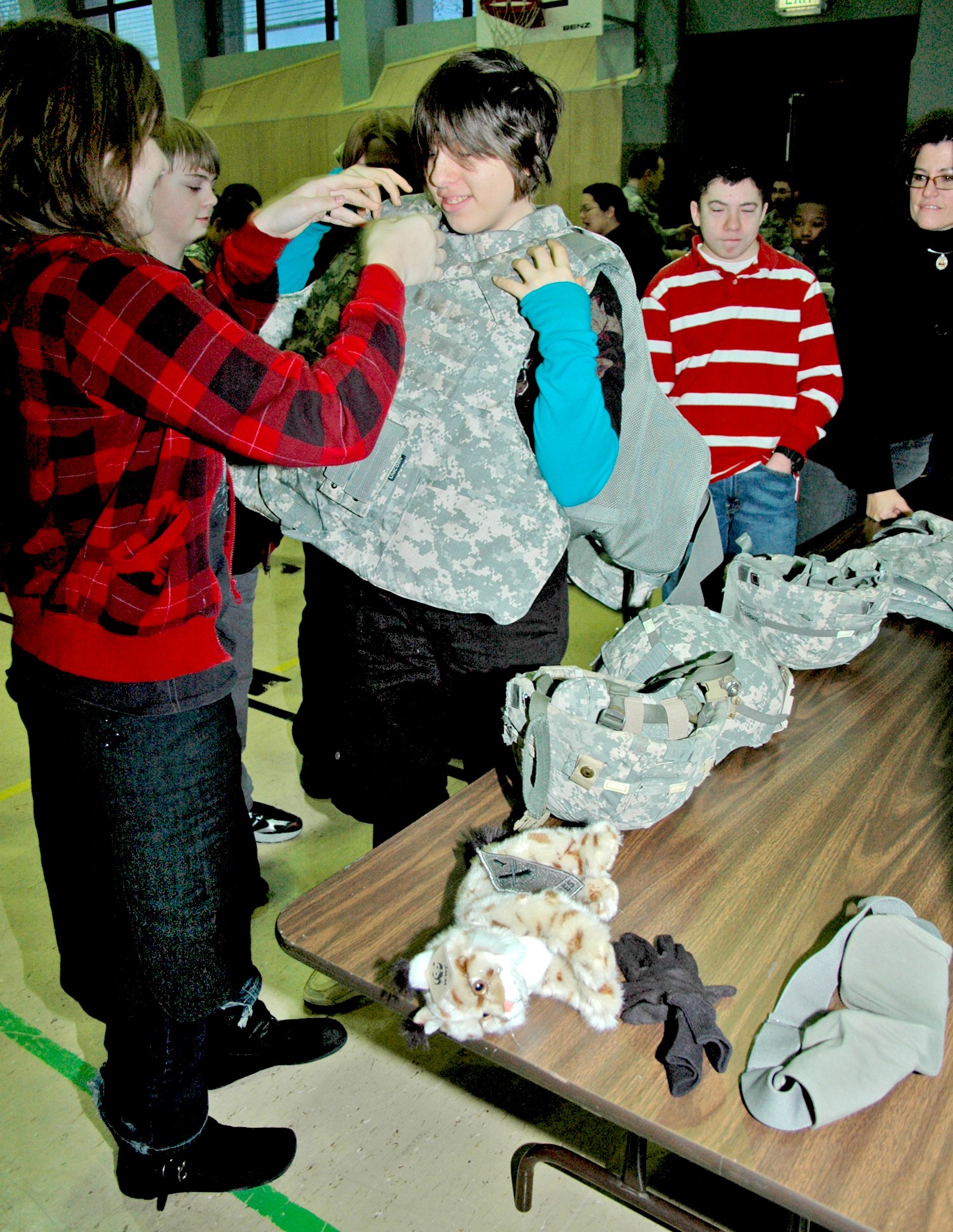
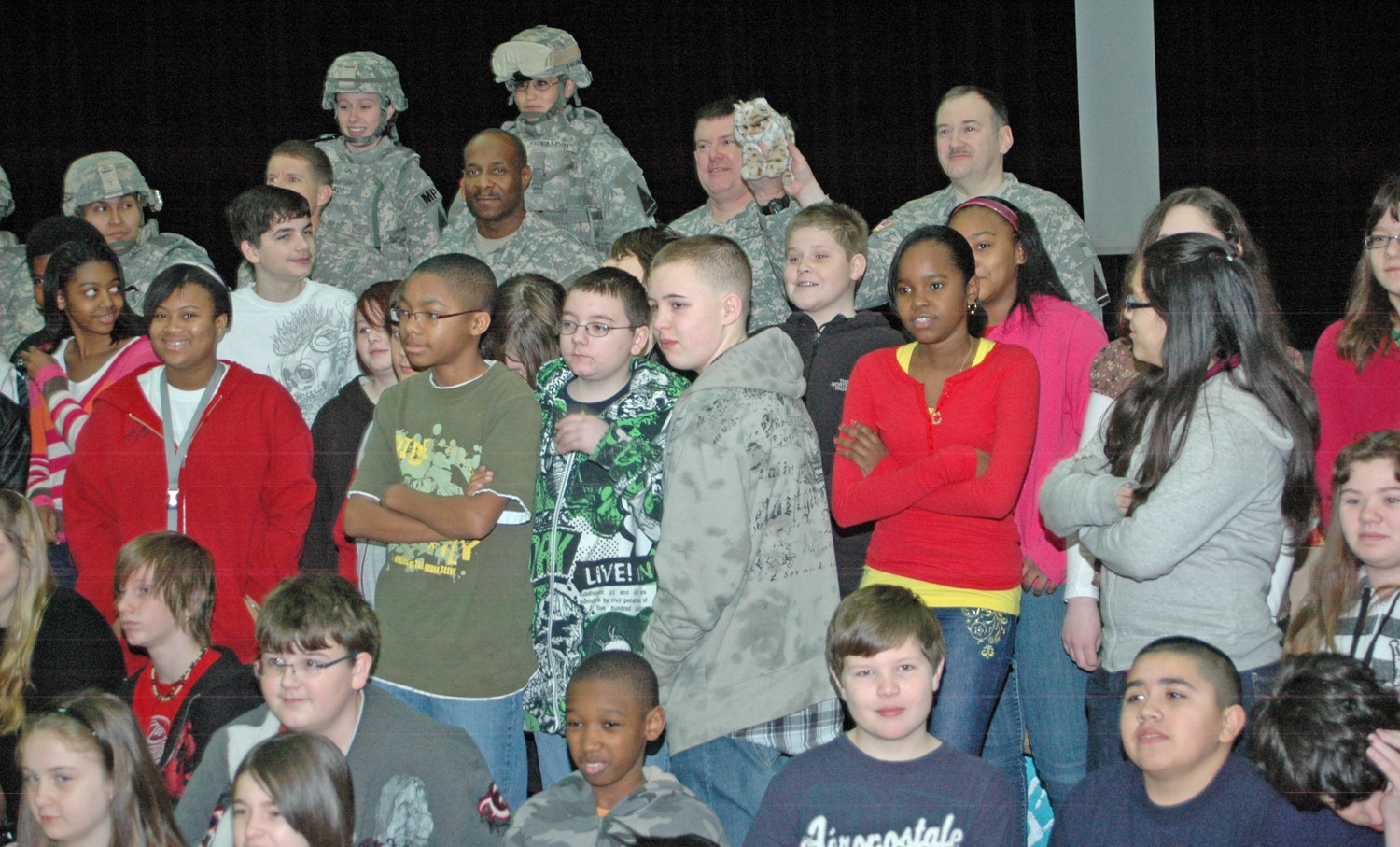
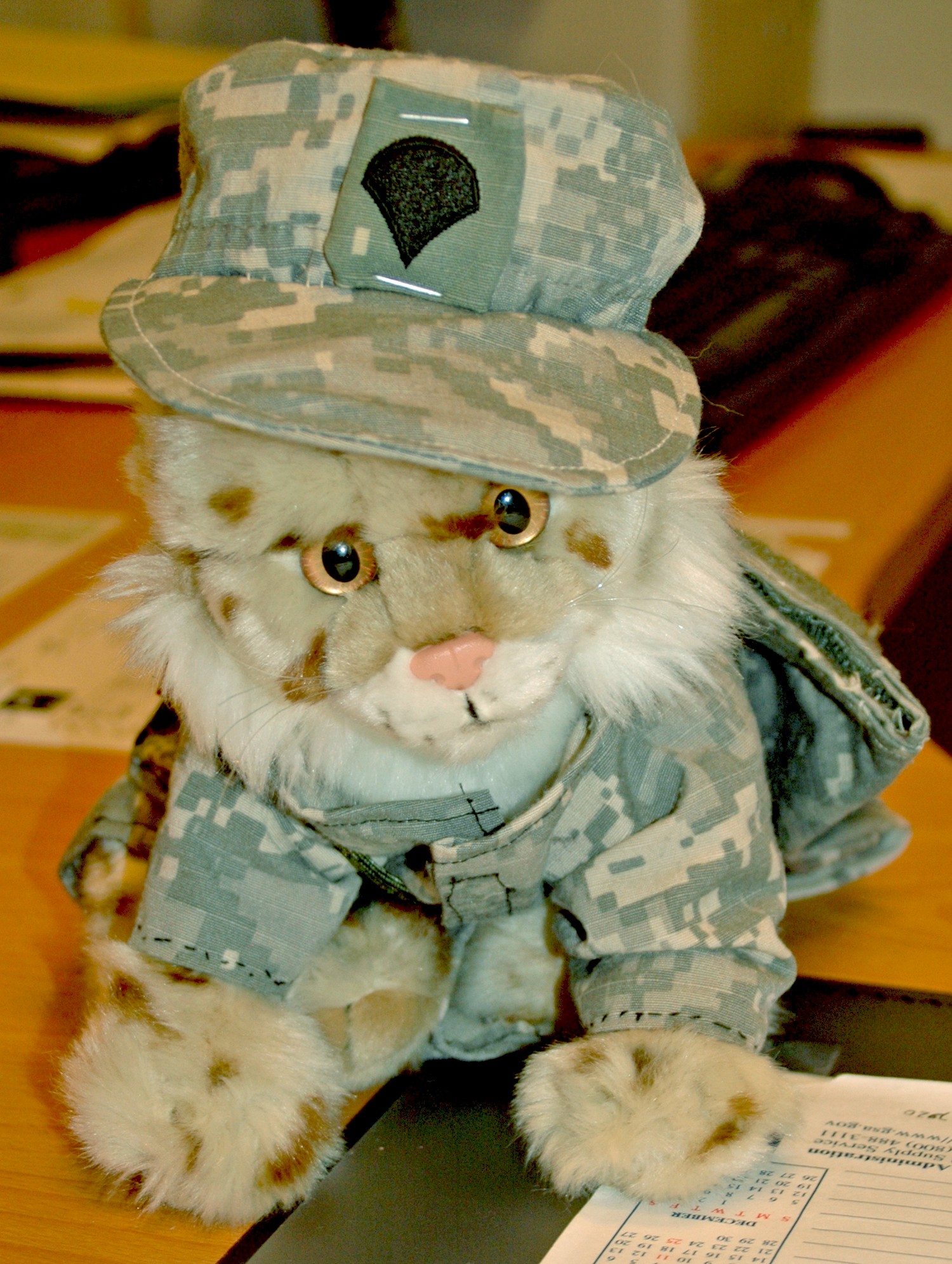
Social Sharing